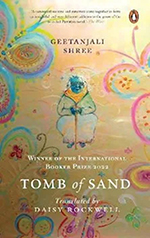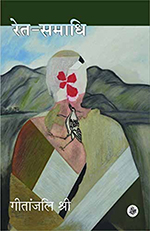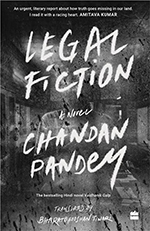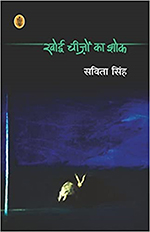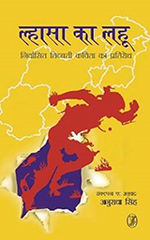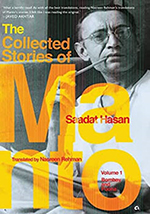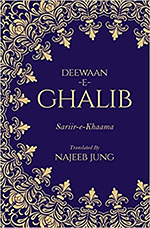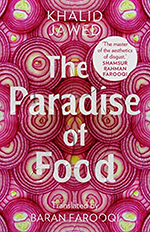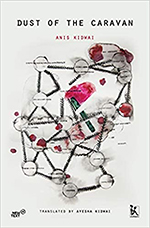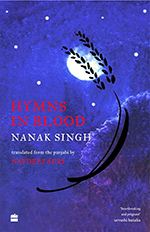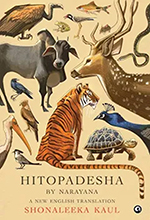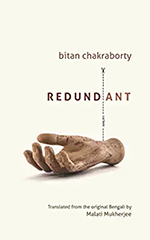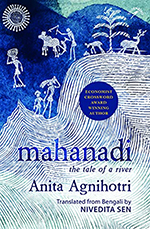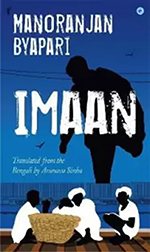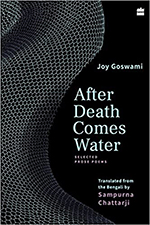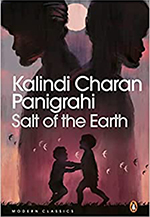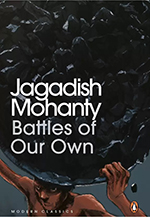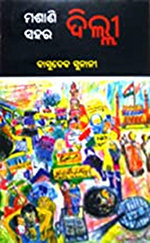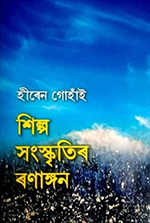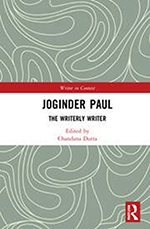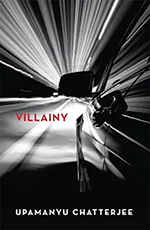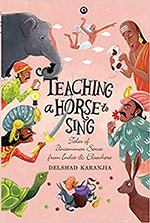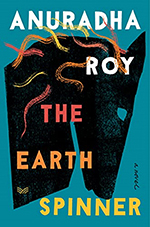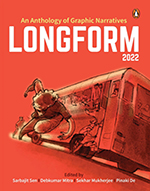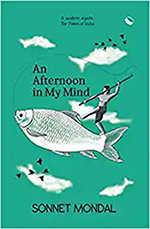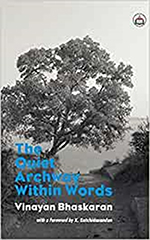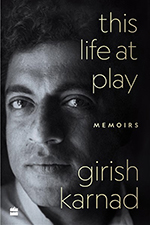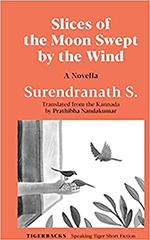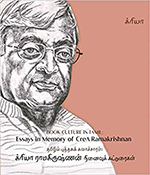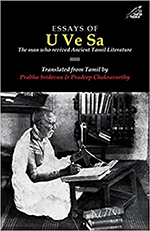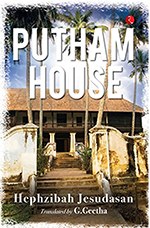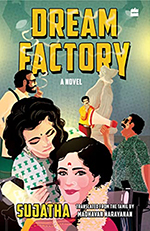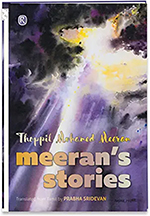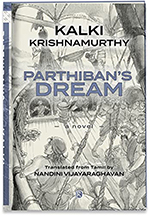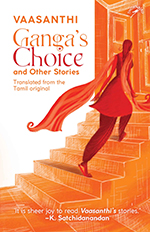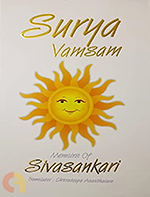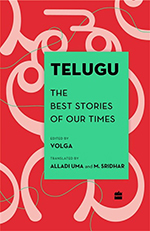International developments have been unfolding with such rapidity in the second half of the present century that any attempt to survey them is in danger of being outdated between the time of its writing and its presentation to the reader.This is particularly true of the Third World in which phenomenal changes have been taking place before our very eyes. The volume under review suffers from a further handicap in so far as the Chinese influence in the world outside can hardly be examined in isolation from the happenings at home which during the last five years have been subjected in a very large measure to the overpowering personalized politics around the father figure of Mao Tse-tung.
Archives
July 2022 . VOLUME 46, NUMBER 7Reading Ret Samadhi and Tomb of Sand is exhilarating, challenging, even exasperating; such is its span and scope, its playful exuberance and idiosyncratic originality of style, playing out differently in the two versions. Given its more recent American/English avatar, one may evoke Whitman: it is vast, it contains multitudes. Given its incontrovertible rootedness in its Indian-subcontinental milieu, however, one must invoke the Mahabharata, the grand epic that it references at the very outset.
2018
As a fellow writer, the fifth novel of Geetanjali Shree leaves you wonderstruck with its sweeping imagination and the sheer power of language, unprecedented and uninhibited. She is known for her experiments with content and form, but this novel keeps you in grips with its storyline as well, which had not really been her forte earlier.
The postscript to this novel says it is dedicated ‘to the brave Uttarakhand police officer, Gagandeep Singh, who saved a young man from a lynch mob’. This dedication indicates the story line that one can expect: it is about individual acts of courage against an establishment that is overwhelmingly powerful.The timeline of the story is three days. On day one, the protagonist, Arjun, an author who is not yet thirty-three, gets a call from one of his ex-girlfriends telling him that her husband has disappeared.
Amuch-admired traditional genre of poetry, elegy does register the harrowing nature of grief that one experiences at the departure of someone very close to us and whose nagging absence never ebbs. The conventional elegy unravels an ever-growing sense of total despair in the form of sorrow, longing, yearning and pining entwined with loneliness, but it also appears banal, repetitive and undramatic.
Lhasa ka Lahu is a critical translation of three Tibetan poets writing from exile in India: Tenzin Tsundue (b. 1975), Bhuchung D Sonam (b.1972) and Tsering Wangmo Dhompa (b. 1969). Of the three, Dhompa is the only female poet in the collection and holds the distinction of being the first Tibetan woman to be published in English.
The excerpts* below have been taken from the Introduction to The Collected Stories of Saadat Hasan Manto–the first of a three-volume series which will contain all of Saadat Hasan Manto’s 255 known stories translated into English by Nasreen Rehman. Nasreen Rehman has written an absorbing and deeply insightful narrative, situating Manto’s work in his life and circumstances, as well as the larger forces affecting him and the people around him.
Editorial
In his book Ghazals of Ghalib, a very novel effort at getting the selected ghazals of Ghalib translated into English by some accomplished poets, Aijaz Ahmad says that ‘good poetic translations, like good poetry itself, are very much a matter of divine luck: talent, skill, and labor have all to be blessed with the divine spark…Success can only be relative; the translator is in an impossible situation and translations of poetry can be not only rarely but also relatively good’ (Ahmad p. xvii).
That is the relation of novel with human existence? Milan Kundera in The Art of the Novel says that ‘A novel examines not reality but existence. And existence is not what has occurred, existence is the realm of human possibilities, everything that man can become, everything he’s capable of. Novelists draw up the map of existence by discovering this or that human possibility.’ Take any work of Khalid Jawed, what one readily encounters is an acute focus on the exploration of characters’ inner life, their experience of being human and The Paradise of Food is no exception in this regard.
Ayesha Kidwai has already given us in English translation Anis Kidwai’s account of what happened immediately after Independence of India and the Partition—Azadi Ki Chhaon Mein (1974). Called In Freedom’s Shade (2011) in English translation, it not only marked Ayesha Kidwai’s debut as an impressive translator (she was already well-known as a brilliant scholar), it also ensured that her grandmother Anis Kidwai’s name and work would be known again to the world at large.
2022
Even when read in English translation, the immediacy of experience yielded page after page in the novel, Hymns in Blood, is remarkable, especially so since it is the throbbing story of something cataclysmic that happened as long back as nearly seventy-five years ago in 1947, during Partition. Undoubtedly, this speaks for the power of the novel written originally by Nanak Singh, the master story teller in Punjabi; but also indeed, it demonstrates the translator’s skills of transporting the vibrancy of the experience from the writer’s robust Punjabi to an English that is endowed with an idiomatic cultural proximity to the original.
2022
One of the best known Sanskrit classics, Narayana’s Hitopadesha is a fascinating collection of animal and human fables, augmented with polished verse epigrams and gnomic stanzas many of which have become proverbial. This satirical, often irreverent and sometime ribald text has been popular for centuries as a composition of worldly advice on matters ranging from state affairs to personal conduct.
2022
The city of Calcutta, like a heaving Leviathan is forever pulsating with energy carousing in its veins. This timeless vitality has been captured in famous novels of the nineteenth and twentieth centuries, but the trend has continued into present times through a perceptible fascination with the dynamism between the place and its people.
Let me begin by saying right away that Mahanadi is a brilliant piece of novelistic work that combines anthropology, ethnography, history and fiction rolled into one. It is a significant addition to a growing number of new fiction in India that sees human lives and relationships as being inextricable from their surroundings. But one does not really care about fictional categories when confronted by a novel like Mahanadi.
2021
Bhai, there are maybe three or four thousand thieves and robbers and murderers and rapists here, at most. But outside, there are millions…An honest man is safe here, outside, his life is hell.’ This is how a beggar, convicted for no reason in the novel Imaan, shudders at the thought of being released from prison, only to confront corruption, violence, sexual predation and killings outside.
Someone who has not read Joy Goswami, in the original Bengali or in translation, would have missed the seminal compositions of one of the world’s finest poets. It is a daunting task to translate Joy Goswami, and it is no less daunting to review the brilliant translation of his book. Since I had not read Goswami’s trilogy in the original, I approached the translation with an open mind. In fact, it is Sampurna who has introduced Joy Goswami to the western world.
With Salt of the Earth, Matira Manisha, the classic Odia novel of 1930 by Kalindi Charan Panigrahi, has seen its third English translation. The first translation (done by Leela Ray and Narendra Mishra) went straight for the jugular in its choice of the title, House Undivided. What this eclipsed was the novel’s rural and agrarian setting, so unmistakably captured in the Odia title, from which comes the author’s romantic-idealistic concern with the soil.
Published in 1990, Jagadish Mohanty’s Battles of Our Own offers a piercing portrait of the dying years of ‘Nehruvian socialism’ when the rot was practically, ‘out in the open’. Marked by an excessive government and bureaucratic control, failed labour movements, toothless trade unions, and widespread corruption, the late 1980s was a period of intense disillusionment with socialist ideologies and principles.
Mashani Sahara Dilli is an important book for many reasons, one of which is its sheering honesty. This Odia novel tells us stories that are marginal to the aspirational India we are supposed to inhabit these days. These are narrated from the vantage point of Anurag, a Government of Odisha officer who is now posted in Delhi for work.
Hiren Gohain is easily one of India’s tallest public intellectuals. He was professor of English at Gauhati University until his retirement in 1999. Whether in his core academic corpus—Tradition and Paradise Lost: A Heretical View (1976), a book based on his doctoral dissertation at Cambridge and Asamīyā Jātīya Jīvanat Mahāpuruṣiyā Paramparā (1987), his much-acclaimed work on Śaṅkaradeva among others—or his political interventions, Gohain directs our glance at ideological structures that insidiously dominate our language and cultures.
Publishing in India has grown tremendously in the seventy-five years since Independence. Although accurate figures are hard to come by, it’s estimated that the Indian book market is the 6th largest in the world by value, and growing. Textbook publishing for schools accounts for the largest number of titles that are sold in the country, followed by the higher education segment, with the most visible part of the industry, trade publishing or books for general readers, coming third. English-language books constitute the largest segment of the book trade in India.
The Taj Falaknuma, a 5-star hotel occupying the former palace of the Nizam of Hyderabad, advertises itself as a ‘jewel amongst the clouds’. Every day, groups of hotel guests and tourists are shepherded through the suites, banquet hall, ballroom and grand staircases which were once the property of the richest man in the world, built during an era when the sun shone brightly on the British Empire. The treasures are displayed by guides as relics of a gilded age, made solemn by the same passage through time which has deposited layers of historicity on the opulently ordinary sofas, beds, study desks and shower cabinets.
Over the last two decades, Indian Writing in English translation has emerged as a flourishing field that has seen a steady rise in the translation of fiction and other forms of creative writing in almost all Indian languages. While there is much to cheer about, what is missing is the study of critical discourses and literary traditions in regional languages in translation. Additionally, with translated works from different Indian languages included in universities’ curricula and a favoured area of research in literary studies, the scarcity of critical material in translation is urgently felt.
2022
Several years ago, Nilanjana S Roy had defined the current crop of Indian Writing in English novelists as a ‘Doon School-St. Stephens’ conspiracy’. It was an interesting but true observation since the writers who were popular at that time were all products of these elite institutions and were quite adept at imitating western culture and simultaneously wrote in a style that was quite polished and urban.
In Teaching a Horse to Sing, Delshad Karanjia ventures on a journey of retelling ‘tales of uncommon sense’ from all around the world, a task that seems as fantastical as the title at first. To enter into this book of wit, wisdom, humour, and most of all, a deep appreciation for the art of storytelling, is to fall down a rabbit hole. Whimsical and fleeting alike, the stories collected in this book are a homage to popular tales that are both cultural and social, whispered across time and all over the world, in similar iterations, lending a universality that is tinged with the local every time a tale is read.
Anuradha Roy is one writer who always takes you by surprise. Each of her books has a story with an intensity that is rare. Each of her books is a joy to read. The Earth Spinner is one such tale. Indian women’s writing in English has successfully moved from the world of domesticity to the more complex world of emotions, ambitions, landscapes. A world that makes you think. A world that draws your attention to differences that determine, decipher, and help us deconstruct the existential discourse.
Four years after the publication of their first anthology of graphic narratives, Longform returns with this eagerly awaited second outing, with eighteen texts from India and abroad. This visually and textually provocative collection of stories breaks boundaries and exposes fault lines of the ‘invisible India’ and the world at large, with an unflinching honesty and empathy for all those who fall off the map or are erased from it.
Sonnet Mondal’s fifth collection of poetry, An Afternoon in My Mind, is a compelling portrayal of contemporary times, when personal grief merges with pandemic loss and loneliness. The book consumes readers and makes them believe that Mondal’s sorrow is their own. It is evident that the poems in this collection are written as a cathartic release, and hence they become an exercise for readers in collective healing.
Having perused Vinayan Bhaskaran’s previous books, such as Beyond the Blue River and The Grand Story of Ikli Chokli (Tulika Books), both children’s books, it was (pleasantly) startling to come across his debut poetry collection, The Quiet Archway within Words. The fantastical story-telling, lush hyperboles and leaps of imagination of the former two, understandably, give way to a very different voice in the latter—a voice which is by turns lonely, rebellious, sardonic, and empathetic to what it perceives to be fundamentally apathetic world.
The publication of Girish Karnad’s aadatha aayushya, aptly translated as this life at play was a much-awaited event among Kannada reading public. The first two chapters published initially in a literary magazine and later serialized in a leading Kannada daily, had created tremendous expectations. When the book finally arrived in 2011, it was a rare feast not just for its richly textured narrative, but also for its language replete with local idioms soaked in Dharwad dialect which we rarely get to see in his plays.
And what is more generous than a window?’ So wondered Pat Schneider in her poem, ‘The Patience of Ordinary Things’. Indeed, for a certain unnamed special boy in an unnamed town, the generosity of a window in his parents’ room that overlooks the road is his daily act of joy, his succour, even nearly the entirety of his world.
S Ramakrishnan (1944–2020) wrote thus in an article presented at a seminar held by the National Book Trust in 1977. He had just founded a small publishing house called CreA in 1974 along with his partner and colleague V. Jayalakshmi (1930–1987). From 1974 to 2020 till he passed on, Ramakrishnan lived his dream of creating a book culture by small publishers
When millennials are used to having the world’s knowledge at their fingertips, it is hard to imagine a time when people undertook arduous journeys to gather whatever little knowledge that they could. Uthamadanapuram Venkatasubbayyar Saminatha Iyer’s (commonly, U Ve Sa) writings give us a glimpse of that era and the life of a man who strived and sought to recover the palm leaf manuscripts of long-forgotten Tamil literatures without yielding to material and human impediments.
Riveting drama demands neither a large amphitheatre nor elaborate stage settings. It can happen in a nondescript village dotted with palmyra trees amidst which sits an old house, ‘huge and rambling, in near ruins’, inappropriately called Putham Veedu (New House). The cast is ready to hand…real people living their real lives within the limitations of societal norms.
S Rangarajan, who wrote under the allonym ‘Sujatha’, was the quintessential Renaissance man—an engineer with the public sector Bharat Electronics Limited and a key member of the team that invented the electronic voting machine; he was a literary phenomenon in Tamil, writing across genres from popular science, science fiction to thrillers, and romances, stage plays, essays and weekly columns in magazines.
2022
Vappa means father and Umma means mother in the dialect used by Tamil-speaking Muslims. Here is a book filled with Vappas, Ummas, Moothummas (Grandmas), and Moothappas (Grandpas). The book Meeran’s Stories has eighteen short stories written by Sahitya Akademi award-winning Thoppil Mohamed Meeran (1944-2019). He won the award in 1997 for the novel Saivu Narkali (The Reclining Chair).
Aprolific writer, a respected journalist, connoisseur of arts, and a revolutionary, R Krishnamurthy, better known as Kalki, was a literary giant, whose body of work includes Alai Osai, and his famous trilogy, Parthiban Kanavu, Ponniyin Selvan and Sivakamiyin Sabatham. Kalki’s novels, written between 1941-54, belonged to a historical genre, a mix of drama, action, intrigue and passion. He chronicled social issues, where fact and fiction merged to provide the background for his stories.
Fifteen short stories of Vaasanthi, originally written in Tamil over many years, have been translated by the author (1 story), Sukanya Venkataraman (11 stories) and Gomathi Narayananan (3 stories) in this collection. The dedication of this collection to Vaasanthi’s grandson who when young ‘asked a profound question/ “Are we real?”’ and the author’s answer to him, ‘We are. Because we feel’ sums up the spirit of all the stories in this collection.
The title Surya Vamsam, translating to ‘the family of the sun’, is a tribute to Sivasankari’s father, Suryanarayanan. ‘…overwhelming, exciting, thrilling, hurtful, shameful, moving, shocking and motivating’, and above all, ‘enlightening’ is how Sivasankari describes the many events and incidents in her life, and hopes that reading about them will bring ‘positive energy’ to her readers.
Volga, acclaimed feminist writer and editor of Telugu: The Best Stories of Our Times, notes that she swam through an ocean and ‘reached the shore holding on to the twenty-six stories,’ that ‘stand as witness to the time’. The resulting panoply features a diverse set of celebrated writers and dives deep into an array of important themes.


